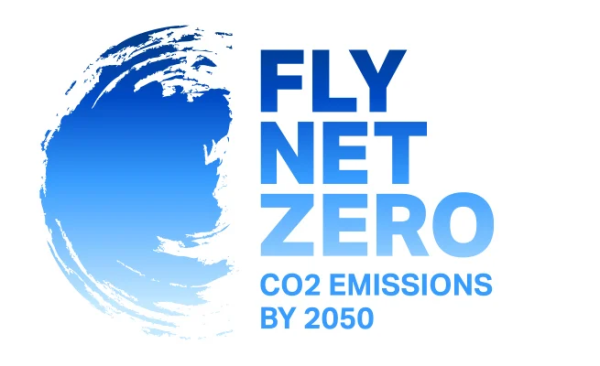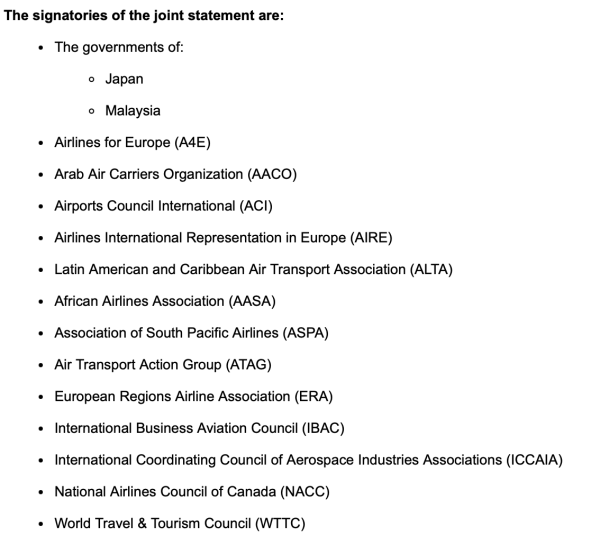SINGAPORE, 20 November 2025: The International Air Transport Association (IATA), together with the governments of Japan, Malaysia and leading industry stakeholders, issued a joint statement at the recent COP30, urging governments and the international community to reaffirm the International Civil Aviation Organization (ICAO)’s leadership and accelerate coordinated climate action for aviation to reach net zero carbon emissions by 2050.
Specifically, the signatories highlight the need for global solutions, emphasising that ICAO remains the exclusive forum for addressing international aviation emissions. The signatories cautioned against fragmented or unilateral measures, stressing that only a unified approach could deliver effective climate results for the sector.

The signatories also stress the role of robust global carbon markets in scaling up climate finance opportunities, which is high on the COP agenda and central to the Baku to Belem Roadmap.
“Aviation is a catalyst for global connectivity and economic development. To achieve net zero emissions by 2050, governments must reaffirm ICAO’s role as the single global authority, fully implement CORSIA, and operationalise Article 6 to unlock climate finance for developing nations,” said IATA’s Director General Willie Walsh.
“Fragmented taxes and levies will not cut emissions—they risk diverting funds from actual emission-reduction investments, which is a critical climate consideration, and will only weaken connectivity and harm those who depend on it most.”
Key points from the joint statement
ICAO’s central role: The statement reaffirms ICAO’s authority, established under the United Nations Framework Convention on Climate Change (UNFCCC) and the Kyoto Protocol, as the sole body for regulating international aviation emissions. The signatories urge all States to uphold ICAO’s leadership and avoid duplicating mechanisms across international processes.
Strengthening CORSIA: The signatories call on all governments to strengthen implementation of the Carbon Offsetting and Reduction Scheme for International Aviation (CORSIA), approved by all 193 ICAO Member States and a cornerstone for achieving net-zero carbon emissions by 2050. In CORSIA’s First Phase (2024-26), airlines are expected to purchase upwards of 200 million credits, generating USD 4–5 billion in revenue. This will increase sharply over the coming years, as the scheme is expected to offset nearly 2 billion credits through 2035. This climate finance will directly support high-quality, independently verified emission-reduction projects — particularly in developing countries — significantly advancing the objectives of the Paris Agreement and promoting sustainable development, technology transfer, and job creation.
Urgent implementation of Article 6: The statement calls on all host countries to operationalise Article 6 of the Paris Agreement, issue Letters of Authorisation (LoAs), and enable the release of CORSIA-Eligible Emissions Units (EEUs). These steps are essential to mobilise international climate finance and support sustainable development.
Taxes and levies are not climate solutions: The signatories caution that taxes and levies, notably ticket taxes such as those proposed by emerging coalitions, are not effective climate instruments and risk negatively affecting investment in real emission-reduction projects. Such measures can impair connectivity and disproportionately harm developing economies and Small Island States.


(Source: IATA)






